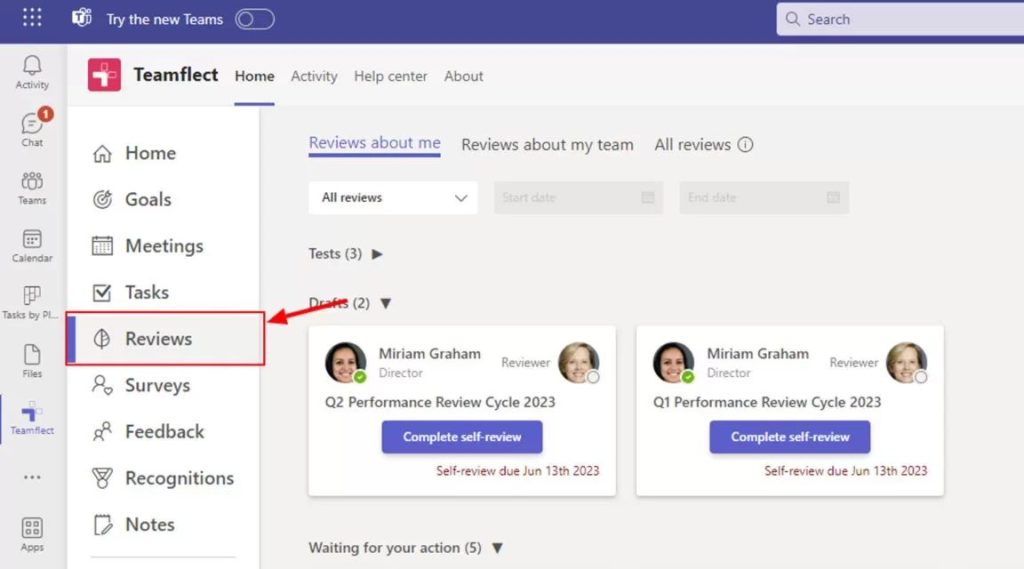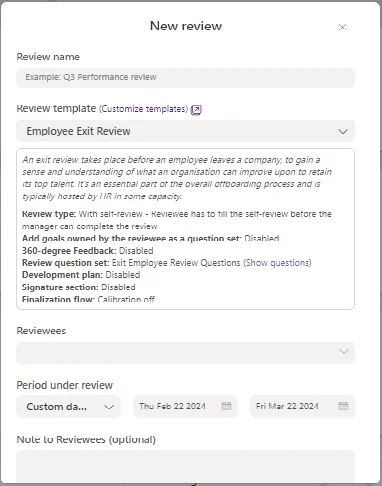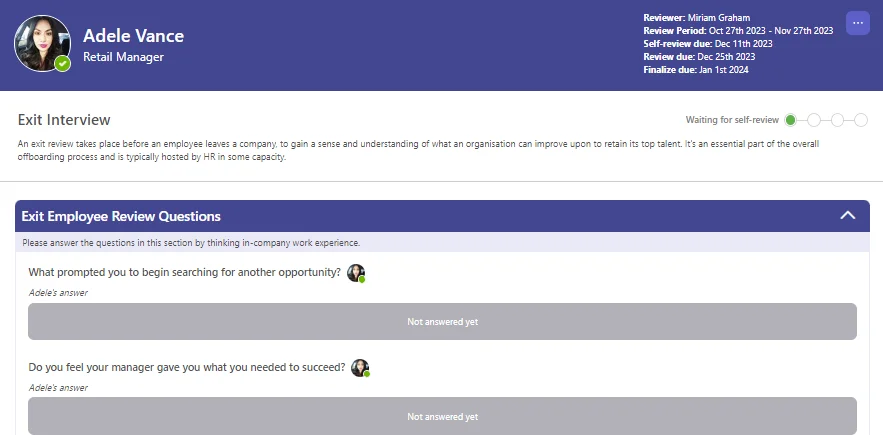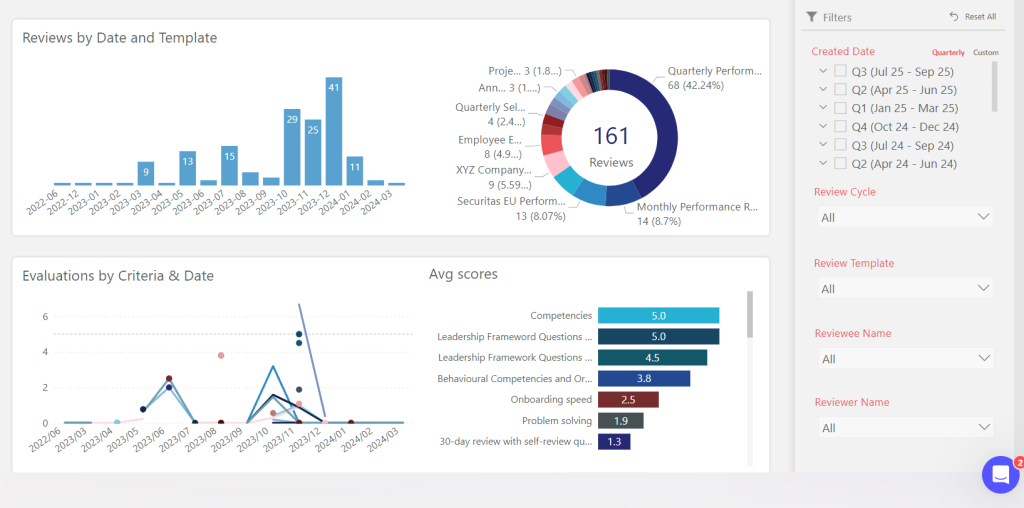The reasons why employees leave their jobs may vary depending on their workplace atmosphere and personal lives.
Employers need to become aware of these reasons to retain and develop their talent. In this blog post, we are listing the top 10 reasons why employees leave their jobs for you to keep your employees around.
However, this list simply consists of example scenarios.
To effectively combat employee attrition, keep scrolling down and discover our unique solution!
Table of Contents
10 Reasons Why Employees Leave Their Work
Understanding the common reasons why people leave their jobs can help you come up with the right strategies that target employee turnover. Below you can find the top 10 reasons why employees leave their work.
1. Toxic Workplace Culture

One of the most common reasons why employees leave their work is having a toxic workplace. Toxic work environments reinforce the “every man for himself” mentality and this leads to resentment among employees.
In toxic workplaces people are usually willing the throw other employees under the bus because they are scared. Employees who work in a toxic work atmosphere will feel resentful, less productive, and they will ultimately want to leave.
2. Looking for a higher salary
One of the important reasons why employees leave is being underpaid for the work they do.
Lifestyle changes or having a family that is currently growing may result in a decision to hunt for other jobs.
3. Wanting to have a healthier relationship with management
Getting along with certain people at work is inevitable and perfectly normal. However, having a subpar relationship with management is another story.
If this relationship is affecting well-being and productivity at work and it can’t be fixed, then it’s understandable that some employees may wish to change their jobs.
4. The need for more autonomy
Although it’s understandable that managers may need to monitor everything to streamline processes, it can backfire.
More autonomy at work can provide employees with the opportunity to figure out how they should work on their own and increase job satisfaction.
When this opportunity not given, employees may feel stressed and they may look for another place for employment.
5. Needing more recognition
Needing more recognition from management is one of the most common reasons why do people quit their jobs.
If direct reports are feeling that their efforts are not truly appreciated through positive feedback and praise, they may feel a lack of motivation.
6. Feeling unsatisfied with policies
There are companies that offer flexible scheduling and remote work opportunities. If an employee thinks that the workplace policies prevent these arrangements, they may seek employment in other companies that offer such benefits.
Inadequate paid time-off and sick leave policies can be among of the reasons why employees leave as well.
7. Seeking work-life balance

If you find yourself constantly working overtime, at a certain point, it can negatively influence your personal life and lead to burnout.
Seeking a healthy work-life balance that allows you to spend time for your loved ones and hobbies is one of the common reasons why employees leave their work.
8. Feeling disengaged
Disengaged employees won’t be loyal to their companies for long. Gallup found that one-third of employees in the US feel engaged at work and this disengagement leads to job search.
Moreover, the employees who feel disengaged are less productive and their performance plummet over time. Therefore, it’s important to detect disengagement early on before it becomes detrimental for your organization.
9. They feel underused
Feeling underused at work when it comes to the volume of tasks and the type of tasks they are doing can be one of the reasons why employees leave.
Employees seek meaningful work or challenges to expand their skill sets and if they feel like their work is not stimulating enough, they may look for other opportunities.
10. Feelings of isolation
Employees spend a great amount of time in their workplace. Feelings of isolation will negatively influence how employees work and it may ultimately lead to job searching.
To overcome this issue, you can incorporate fun interactive activities into your daily meetings which can eliminate the sense of isolation and strengthen team bonds.
Conducting Exit Interviews: Find Out Why Employees Are Leaving
Benefits of Exit Interviews
We have compiled this list of 9 reasons that reveals the importance of exit interviews. Read on and discover more!
1. Employees who are quitting their jobs are usually more forthcoming than those who are still working in your company.
2. You can discover why your employee is leaving in the exit interview and the reason why employees leave may be different than you’ve anticipated.
3. With an exit interview, you may allow your departing employees to leave on a positive note and receive their constructive feedback.
4. You can review the continuing obligations thanks to the last touchpoint that exit interviews provide such as non-competes and intellectual property agreements.
5. During exit interviews, you can ask employees the issues that you need to be aware of.
6. The departing employees can provide you with honest feedback about your organization’s culture and atmosphere.
7. You may receive insights into your hiring, onboarding and training practices.
8. You can improve employee retention with the help of candid feedback you receive.
9. Exit interviews can reveal how you can improve management development and succession planning.
How to Conduct Exit Interviews within Microsoft Teams & Outlook?
In order to conveniently conduct and analyze exit interviews inside platforms like Microsoft Teams and Outlook, you need to take advantage of performance review software.
For this example, we will be showing you how you can conduct exit interviews with Teamflect, the highest-rated performance review software in the Microsoft Teams app store.
1. Access Teamflect Reviews Module and Click New Review

You need to access Teamflect’s Reviews Module first to begin your exit review.
For this, open Microsoft Teams and search for the Teamflect app. Next, you should enter the Reviews module.
You can click New Review, then name the review as Employee Exit Review.
2. Select Review Template and Fill Out the Important Information

The next step is to pick the review template that best serves your performance review needs. In this particular case, all you need to do is to select the exit interview template.
Of course, these templates can be fully customized with various different question types, or used as they are.
3. Complete Exit Review and Submit Review

Once the exit interview has been sent out, all that is left on the employee’s part is to fill out the exit questionnaire.
4. Access Detailed Reports On Review Results

The purpose of an exit interview is to gain insights into employee departures. Teamflect’s advanced reporting capabilities allow leaders to analyze exit interview responses in bulk, and analyze the patterns, in order to understand why their employees are leaving.



